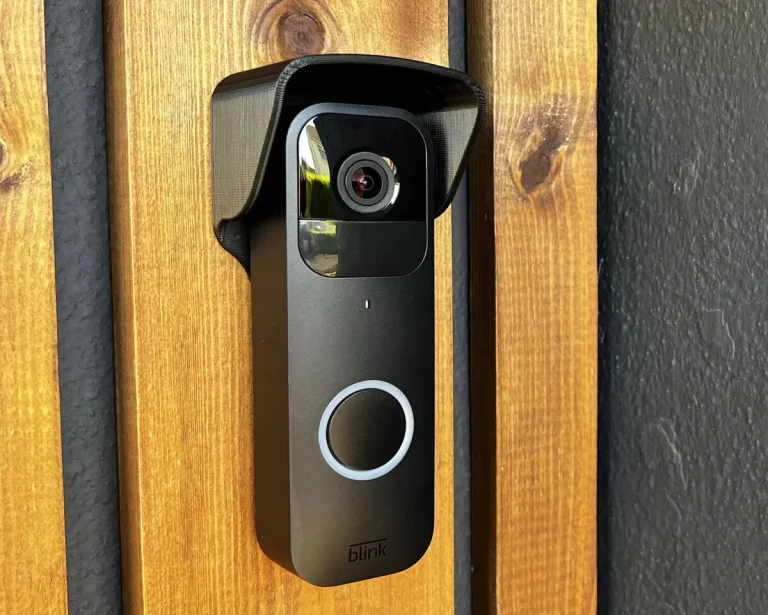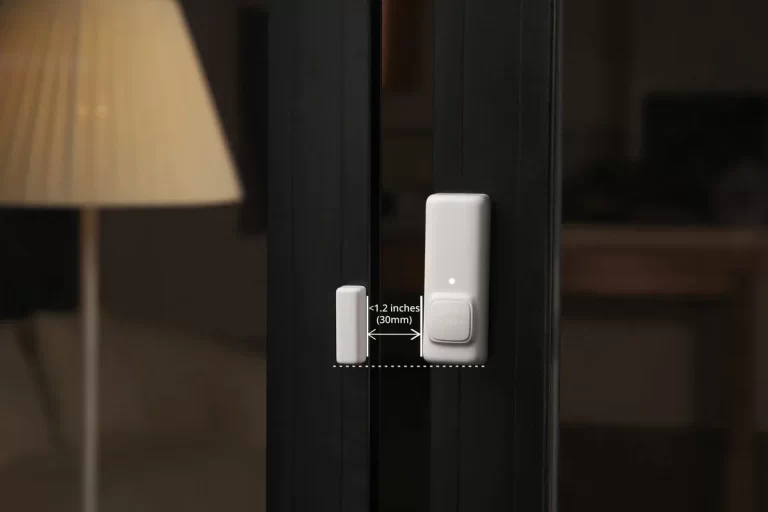What is the Difference Between Smart and Electronic Door Lock?
With advancements in technology, traditional door locks have evolved into smart and electronic door locks, providing enhanced convenience and security. While both types of locks serve the primary purpose of securing your doors, they differ in terms of functionality and features.
In this article, we will explore the key differences between smart and electronic door locks, helping you make an informed decision when it comes to protecting your home and loved ones.
What is the difference between smart and electronic door lock?
Both smart and electronic door locks offer an alternative to traditional mechanical locks by providing electronic means of access control. However, there are distinct differences between the two. Let’s delve into the specifics:
What are Smart Door Locks
Smart door locks integrate with your home automation system, allowing you to control and monitor access to your home remotely.
These locks utilize advanced technologies such as Wi-Fi, Bluetooth, or Zigbee to communicate with your smartphone or other smart devices. Here are some key features and benefits of smart door locks:
1. Convenience and Remote Access
Smart door locks offer the convenience of keyless entry. You can unlock your door with a simple tap on your smartphone or by using voice commands with a compatible virtual assistant.
Additionally, you can provide temporary access codes to family members, friends, or service providers, even when you’re not at home.
2. Integration with Home Automation
Smart door locks can seamlessly integrate with your existing smart home automation system. This integration allows you to control your door lock along with other connected devices, such as lights, thermostats, and security cameras, from a single app or hub.
3. Enhanced Security Features
Smart door locks often come equipped with advanced security features.
These may include built-in alarms that can deter potential intruders, tamper alerts that notify you of any unauthorized attempts to access your home, and activity logs that keep track of who enters and exits your premises.
4. Remote Monitoring
With smart door locks, you can monitor the status of your door lock and receive real-time notifications on your smartphone.
This feature enables you to know whether your door is locked or unlocked, providing peace of mind and added security.
5. Keyless Entry Options
In addition to smartphone control, smart door locks may offer alternative keyless entry options such as keypads or fingerprint scanners. These options provide an extra layer of convenience and eliminate the need for physical keys.
Despite the numerous advantages, it’s essential to consider some potential drawbacks of smart door locks:
1. Reliance on Power and Connectivity
Smart door locks require a power source, typically batteries, to function. It’s crucial to ensure that the batteries are adequately maintained to avoid lockouts.
Additionally, connectivity issues can arise if your home experiences Wi-Fi or power outages.
2. Potential Security Vulnerabilities
As with any electronic device, smart door locks may be susceptible to hacking or unauthorized access attempts. It’s essential to choose reputable brands that prioritize security and regularly update their software to address potential vulnerabilities.
What are Electronic Door Locks
Electronic door locks, also known as keyless entry systems, provide an alternative to traditional key-based locks.
These locks utilize electronic mechanisms, such as keypads or key cards, to grant access. Here are some key features and benefits of electronic door locks:
1. Keyless Entry
Electronic door locks eliminate the need for physical keys, providing a convenient and hassle-free entry experience. Instead, users can enter a unique code into a keypad or use a key card or fob to unlock the door.
2. Enhanced Access Control
With electronic door locks, you can easily manage access permissions. This is especially beneficial for businesses, rental properties, or shared spaces where multiple people require access.
Codes or key cards can be easily revoked or changed, reducing the risk of unauthorized entry.
3. Audit Trail
Many electronic door locks offer an audit trail feature that keeps a record of who accessed the door and at what time. This feature can be useful for monitoring employee attendance or investigating security incidents.
4. Durability and Longevity
Electronic door locks are generally built to withstand the elements and frequent use. They are often made from sturdy materials and have a longer lifespan compared to traditional mechanical locks.
5. Integration with Security Systems
While not as comprehensive as smart door locks, electronic door locks can integrate with security systems, such as alarms or surveillance cameras, to enhance overall security.
Despite their advantages, electronic door locks also have some considerations to keep in mind:
1. Limited Remote Access
Unlike smart door locks, electronic door locks typically do not offer remote access capabilities. You need to be physically present or within close proximity to the lock to operate it.
2. Reliance on Codes or Key Cards
Electronic door locks require users to remember codes or carry key cards or fobs. This can be inconvenient if the code is forgotten or the key card is misplaced.
3. Lack of Advanced Features
Electronic door locksdo not offer the same level of advanced features and integration capabilities as smart door locks. They primarily focus on providing keyless entry and basic access control.
Conclusion
Ultimately, the decision between a smart door lock and an electronic door lock depends on your priorities. If you value convenience, remote access, and integration with other smart home devices, a smart door lock may be the ideal choice for you.
However, if you prioritize keyless entry, basic access control, and durability, an electronic door lock may be more suitable.
Whichever option you choose, it’s important to select reputable brands, prioritize security features, and regularly maintain and update your lock to ensure optimal performance and protection for your home or business.
With the right choice, you can enhance the security and convenience of your property while embracing the benefits of modern technology.
READ ALSO!!!





